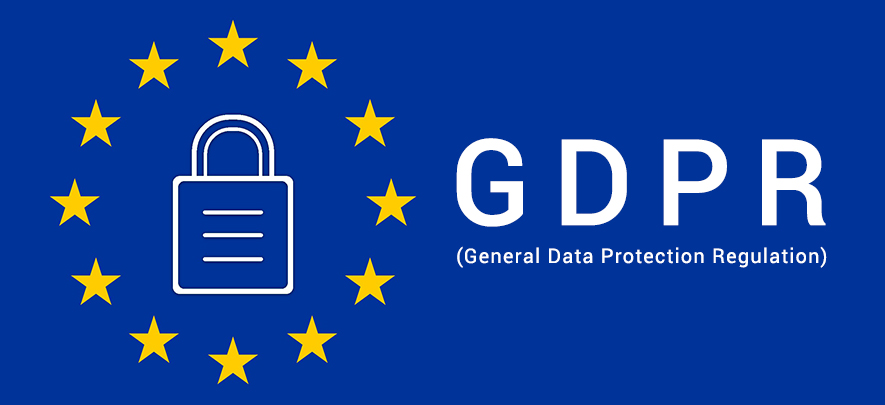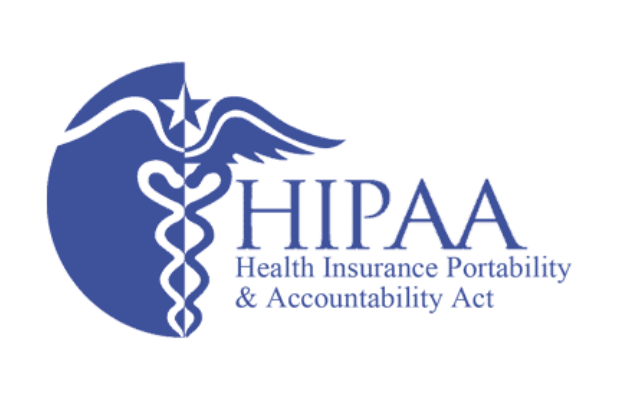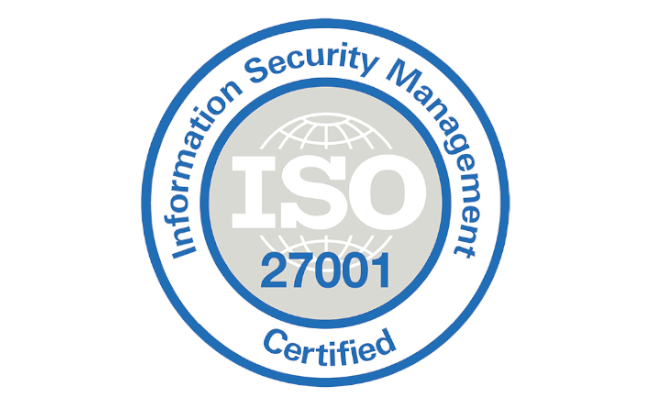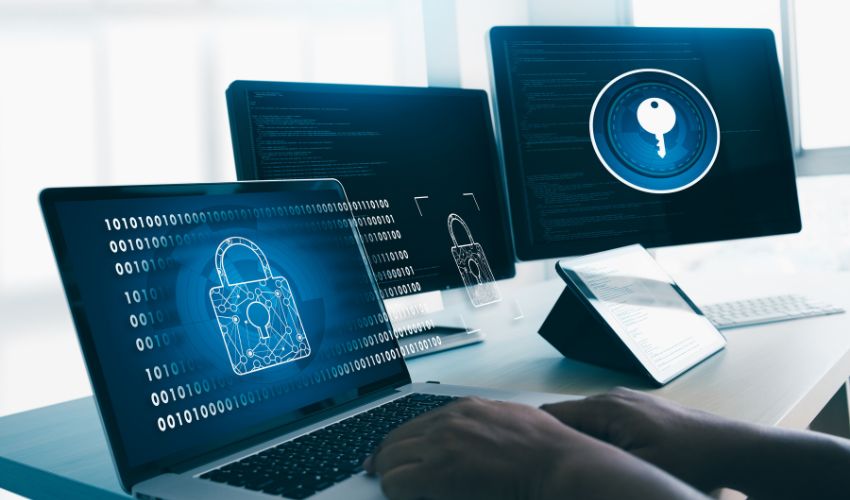How Software Outsourcing Companies Handle Security & Data Compliance
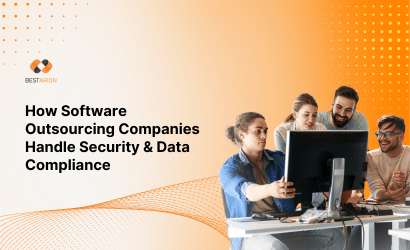
In today’s interconnected digital landscape, software outsourcing has become a strategic imperative for businesses seeking cost-effective solutions and access to global talent. However, entrusting sensitive data and critical operations to external partners introduces significant security and compliance challenges. To mitigate these risks, leading software outsourcing companies implement comprehensive strategies that encompass robust security measures and stringent data compliance protocols.
Why Security and Compliance Matter in Software Outsourcing
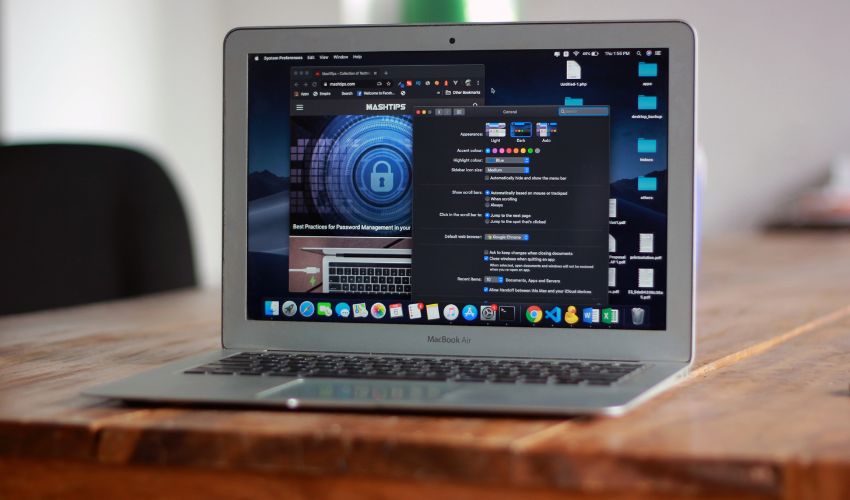
When companies outsource software development, they essentially extend their internal IT ecosystem to third-party vendors, often located in different legal jurisdictions. This introduces a multitude of risks, including:
-
Data breaches or leaks due to weak infrastructure or mishandling of confidential data.
-
Legal liabilities if compliance regulations are violated.
-
Reputational damage if customer data is exposed or regulatory actions are made public.
-
Financial penalties imposed by regulatory bodies such as the European Commission or U.S. Federal Trade Commission (FTC).
To combat these risks, software outsourcing providers need to establish comprehensive security and compliance frameworks that satisfy both international standards and client-specific requirements.
Key Regulations Governing Data Security and Compliance
Understanding the regulatory environment is crucial for both clients and vendors. Some of the most influential laws and standards include:
1. General Data Protection Regulation (GDPR) – EU
GDPR is one of the world’s most stringent data protection regulations. It governs how businesses collect, process, and store the personal data of EU citizens, regardless of where the data processor is located. Software outsourcing companies working with EU-based clients must ensure:
-
Lawful data processing based on consent or legitimate interest.
-
Data minimization and purpose limitation.
-
The ability to delete data upon user request (“right to be forgotten”).
-
Proper breach notification protocols within 72 hours.
2. California Consumer Privacy Act (CCPA) – USA
The CCPA focuses on giving California residents control over their personal data. It mandates that businesses disclose what personal information they collect, allow users to opt out of data sales, and delete user data upon request. Vendors serving U.S. clients, especially those handling consumer data, must comply with CCPA or face substantial fines.
3. Health Insurance Portability and Accountability Act (HIPAA) – USA
For healthcare-related software outsourcing, HIPAA compliance is essential. It outlines national standards for securing sensitive patient information. Software solutions that store or transmit health information must follow HIPAA rules regarding:
-
Secure data storage and transmission.
-
Access control and audit logs.
-
Employee training on privacy policies.
4. Payment Card Industry Data Security Standard (PCI DSS)
Any software outsourcing firm involved in developing eCommerce platforms or payment processing systems must comply with PCI DSS. The standard includes 12 key requirements, such as:
-
Building and maintaining secure systems.
-
Protecting stored cardholder data.
-
Maintaining a vulnerability management program.
5. ISO/IEC 27001 – International Standard
ISO/IEC 27001 is a globally recognized framework for establishing an Information Security Management System (ISMS). Many reputable outsourcing companies obtain ISO 27001 certification to demonstrate their commitment to information security.
Regional Data Privacy Laws
In addition to global standards, many countries have developed their own regional data protection laws:
-
India’s Digital Personal Data Protection Act (DPDP) focuses on lawful processing and data sovereignty.
-
Brazil’s LGPD mirrors GDPR in protecting user privacy.
-
China’s Personal Information Protection Law (PIPL) imposes strict regulations on how data related to Chinese citizens is handled and exported.
Software outsourcing companies working across borders must stay up to date on these legal frameworks to ensure localized compliance.
Cross-Border Data Transfer Challenges
One of the most complex challenges in outsourcing is cross-border data transfers. When data flows from one jurisdiction to another, especially from a region with strong data protection laws (e.g., EU) to one with weaker protections, specific mechanisms are required, such as:
-
Standard Contractual Clauses (SCCs) approved by the EU.
-
Binding Corporate Rules (BCRs) for multinational corporations.
-
Adequacy Decisions, where the EU recognizes that a country provides a comparable level of protection.
Outsourcing partners must implement these legal tools to ensure data flows remain compliant, especially in cloud-based or remote development environments.
Client-Specific Security Requirements
Beyond regulatory frameworks, outsourcing companies often work under stringent security requirements set by clients themselves. These might include:
-
Adherence to custom security policies and internal compliance checklists.
-
Integrating with third-party risk management systems.
-
Passing third-party audits or penetration testing before project onboarding.
The ability to adapt to client-specific compliance frameworks is a hallmark of a mature and trustworthy outsourcing partner.de
The Growing Importance of Compliance-as-a-Service
To manage the complexity of these requirements, some software outsourcing providers are turning to Compliance-as-a-Service (CaaS) solutions. These platforms provide automated tools for:
-
Real-time compliance monitoring.
-
Audit trail management.
-
Policy enforcement and reporting.
By leveraging CaaS platforms, outsourcing firms can ensure continuous compliance and reduce the human error often associated with manual tracking.
Best Practices for Security and Data Compliance in Software Outsourcing
1. Rigorous Vendor Vetting and Due Diligence
Before engaging with an outsourcing partner, companies conduct thorough assessments to evaluate the vendor’s security posture and compliance history. This includes reviewing certifications such as ISO 27001, SOC 2, and PCI DSS, as well as examining past audit reports and security policies. Such diligence ensures alignment with the company’s security standards and regulatory requirements.
2. Comprehensive Contractual Agreements
Legal agreements form the foundation of a secure outsourcing relationship. Key contractual elements include:
-
Master Service Agreements (MSAs): Outline the overall terms, responsibilities, and expectations of both parties.
-
Service Level Agreements (SLAs): Define performance metrics, response times, and penalties for non-compliance.
-
Non-Disclosure Agreements (NDAs): Protect confidential information and intellectual property.
These documents should explicitly address data protection measures, breach notification protocols, and compliance obligations.
3. Implementation of Robust Access Controls
Limiting access to sensitive data is crucial. Outsourcing companies employ:
-
Role-Based Access Control (RBAC): Ensures individuals access only the data necessary for their role.
-
Multi-Factor Authentication (MFA): Adds an extra layer of security beyond passwords.
-
Regular Access Reviews: Periodically assess and adjust access rights to prevent unauthorized data exposure.
These measures help prevent internal threats and unauthorized data access.
4. Data Encryption and Secure Communication
Protecting data during transmission and storage is paramount. Outsourcing firms utilize:
-
End-to-End Encryption: Safeguards data as it moves between systems.
-
Secure File Transfer Protocols (SFTP): Ensure safe data exchange.
-
Encrypted Storage Solutions: Protect data at rest from unauthorized access.
These technologies help maintain data confidentiality and integrity.
5. Continuous Monitoring and Incident Response Planning
Proactive monitoring allows for the early detection of security incidents. Outsourcing companies implement:
-
Security Information and Event Management (SIEM) Systems: Aggregate and analyze security data in real-time.
-
Regular Security Audits: Identify vulnerabilities and ensure compliance.
-
Incident Response Plans: Define procedures for addressing security breaches promptly and effectively
Regular drills and updates to these plans ensure preparedness for potential threats.
6. Employee Training and Security Awareness
Human error remains a leading cause of security breaches. To mitigate this, outsourcing firms:
-
Conduct Regular Training Sessions: Educate employees on security best practices and emerging threats.
-
Promote a Security-First Culture: Encourage vigilance and accountability among staff.
-
Implement Phishing Simulations: Test and improve employee responses to potential threats.
An informed workforce is a critical line of defense against cyber threats.
7. Compliance with International Data Protection Laws
Outsourcing companies must navigate various data protection laws, especially when handling cross-border data transfers. Strategies include:
-
Standard Contractual Clauses (SCCs): Ensure legal data transfers between EU and non-EU countries.
-
Binding Corporate Rules (BCRs): Internal policies for multinational companies to transfer data within the organization legally.
-
Data Localization Practices: Store data within specific geographic boundaries as required by local laws.
Adhering to these regulations is essential to avoid legal penalties and maintain client trust.
In-House vs Outsourced Software Development: Security & Compliance Comparison
| Criteria | In-House Development | Outsourced Development |
|---|---|---|
| Security Control | Full control over systems, networks, and data access. | Relies on vendor’s infrastructure and protocols; requires clear contracts. |
| Data Compliance | Easier to align with internal policies and local regulations. | Must ensure vendor complies with GDPR, HIPAA, ISO, etc., across jurisdictions. |
| Access Management | Controlled by internal IT; easier to enforce zero-trust and RBAC. | Requires external RBAC, MFA, and NDA agreements with offshore/nearshore teams. |
| Incident Response | Faster reaction time due to direct control. | Depends on vendor’s incident response SLA and readiness. |
| Certifications Required | Follows internal audit processes; may lack external certification. | Top vendors often maintain ISO 27001, SOC 2, and other certifications. |
| Monitoring & Auditing | Continuous internal audits and logging possible. | Requires agreed-upon audit access and third-party security assessments. |
| Cost of Security | Higher—requires building security infrastructure and hiring talent. | Lower upfront; security is often built into the vendor’s service cost. |
| Scalability of Security | Slower—requires scaling internal teams and tools. | Faster—vendors have mature, scalable security ecosystems. |
| Regulatory Risk | Easier to control but depends on internal governance discipline. | Shared risk; needs strong legal agreements and oversight. |
Notes:
-
For highly regulated industries (finance, healthcare), hybrid models are often preferred—combining internal oversight with outsourced development power.
-
Outsourcing security risk can be mitigated through SLAs, vendor risk assessments, and compliance audits.
Emerging Threats & Trends in Data Compliance
As digital ecosystems grow more complex, so do the risks associated with outsourcing software development. While many organizations have matured in terms of basic data protection practices, emerging cybersecurity threats and shifting global regulations are reshaping the compliance landscape in 2024 and beyond. Software outsourcing companies must stay agile and proactive to mitigate these risks while staying ahead of evolving laws and industry standards.
1. AI-Generated Phishing Attacks
With the rise of generative AI tools, phishing emails and voice impersonations have become disturbingly realistic. Threat actors are now leveraging large language models (LLMs) to craft hyper-personalized phishing campaigns that can deceive even security-conscious employees.
-
Why it matters in outsourcing: Development teams spread across multiple countries and time zones often rely on asynchronous communication tools like email, Slack, or Microsoft Teams. This creates multiple vectors for attackers to exploit through convincing AI-generated messages.
-
Best practices: Leading software outsourcing firms are adopting advanced email threat detection, AI-based anomaly monitoring, and mandatory phishing simulation training for all staff.
2. Deepfake Social Engineering
Deepfake technology has evolved from viral videos to a serious cybersecurity concern. Cybercriminals can now mimic voices and facial movements to impersonate executives or IT staff and trick employees into revealing credentials or accessing sensitive systems.
-
Real-world scenario: In a recent case, attackers used a deepfake video call to impersonate a CFO and successfully convince an employee to transfer funds. In an outsourcing context, this could be used to gain access to dev environments or production systems.
-
Mitigation: Outsourcing vendors are implementing video call verification protocols, multi-channel authentication, and employee awareness programs to counter this next-gen threat.
3. Adoption of Zero-Trust Architecture
Traditional perimeter-based security models are no longer sufficient. With remote teams, cloud infrastructure, and third-party integrations, zero-trust architecture (ZTA) is becoming a gold standard in software outsourcing.
-
What is zero trust?
Zero trust operates on the principle of “never trust, always verify.” Every access reque -
st is thoroughly authenticated, authorized, and encrypted—regardless of its origin.
-
How outsourcing companies use it:
Reputable vendors are increasingly deploying micro-segmentation, least privilege access, multi-factor authentication (MFA), and real-time session monitoring to enforce zero trust across development environments.
4. Changing Regulatory Landscape: AI Act, NIS2, and Beyond
Governments and regulatory bodies worldwide are responding to new technological threats by introducing stricter data governance laws—many of which directly affect outsourcing arrangements.
a. EU AI Act
The EU AI Act, expected to take full effect by 2026, will regulate high-risk AI systems—including those used in HR, finance, and healthcare. For software outsourcing vendors building AI-based products, compliance will involve:
-
Rigorous data governance protocols.
-
Transparency requirements.
-
Risk assessment and human oversight.
Why it matters: Outsourcing partners involved in AI model development must ensure their systems are explainable, auditable, and secure by design.
b. NIS2 Directive
The NIS2 Directive, which replaces the EU’s original Network and Information Security Directive, extends its scope to cover more sectors and enforces stricter incident reporting and supply chain risk management.
-
Impact on outsourcing: Software vendors that support critical infrastructure (e.g., finance, healthcare, energy) will be required to adopt stronger cybersecurity measures, maintain secure development lifecycles, and report security incidents within 24 hours.
5. Rise of Continuous Compliance & Automated Governance
As regulatory expectations evolve, static compliance audits are no longer enough. Software outsourcing companies are now embracing continuous compliance, which uses automation to monitor and enforce policies in real time.
-
Tools like Drata, Vanta, and Secureframe help vendors automatically generate audit trails, validate configurations, and monitor control effectiveness.
-
This is especially critical for companies managing DevOps pipelines, cloud-native architectures, or multiple compliance frameworks like SOC 2, ISO 27001, and HIPAA simultaneously.
6. Greater Client Involvement in Compliance Oversight
Clients are no longer passive observers. Enterprises now expect visibility into how their outsourcing partners manage security and compliance on an ongoing basis.
-
Trends include:
-
Shared compliance dashboards
-
Regular cybersecurity assessments
-
Embedded compliance clauses in SLAs (Service-Level Agreements)
-
Forward-looking software outsourcing firms are offering client-specific compliance customization, allowing enterprise clients to track data flows, audit trails, and security posture in near real time.
Read more: The Importance of DevOps in Cloud Security Management
Frequently Asked Questions (FAQ)
1. How do outsourcing companies ensure GDPR compliance?
They implement data minimization, encryption, and consent-based processing. Most use Data Processing Agreements (DPAs), appoint DPOs, and follow privacy-by-design principles.
2. Is software outsourcing secure?
Yes—when done with vetted vendors. Leading companies use encryption, access control, secure coding, regular audits, and zero-trust architecture.
3. What should be in a data security agreement with an outsourcing vendor?
It should include data handling protocols, breach notification rules, encryption standards, audit rights, and compliance with laws like GDPR or HIPAA.
4. What certifications prove an outsourcing company is secure?
Look for ISO 27001, SOC 2 Type II, GDPR compliance, HIPAA (for healthcare), and PCI DSS (for payments).
Conclusion
Software outsourcing companies play a pivotal role in the global digital economy, offering specialized services that drive innovation and efficiency. However, the responsibility of safeguarding sensitive data and ensuring compliance with complex regulatory landscapes cannot be overstated. By implementing rigorous security measures, fostering a culture of compliance, and staying abreast of emerging technologies and regulations, outsourcing firms can build resilient operations that protect their clients’ interests and maintain trust in an increasingly interconnected world.

